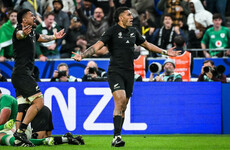IN MANY WAYS, 2014 proved a superb year for goalkeepers.
At the World Cup, they cropped up in a number of high-profile incidents – but in a positive way for a change. Both Tim Howard and Keyler Navas delivered improbable performances against Belgium and Greece respectively. There was the incredible moment when Louis van Gaal replaced Jasper Cillessen with Tim Krul prior to Holland’s penalty shootout success over Costa Rica. And, of course, Manuel Neuer’s sweeper-keeper revolution was a key element in Germany’s subsequent success.
The Premier League season has also seen David de Gea pick up where he left off last term – the Spaniard proving Manchester United’s most important player under Louis van Gaal. Over at Chelsea meanwhile, Thibaut Courtois continues to deliver understated brilliance on a regular basis.
So, are we experiencing a golden age for goalkeepers or merely getting ahead of ourselves a little?
“I’m not sure it’s better than any other period in football’s history”, Jonathan Wilson told TheScore.ie
“I’d suspect what’s happened is that the great goalkeepers have now become concentrated in the top leagues and that scouting is much better so there are more of them playing at the highest level and therefore they’re more visible”, says Wilson, who studied the history of the position in his book The Outsider.
As much as Neuer and Courtois have been commended for their excellence over the last number of years, De Gea has previously struggled with intense criticism and was dropped for a handful of United games in early 2012 owing to his poor form. Wilson feels that the Spaniard is a more developed goalkeeper now, having fine-tuned the smaller details.
What has been more noticeable this season is those less flamboyant and spectacular blocks. Peter Shilton, in his book The Magnificent Obsession, said some of his best games for Nottingham Forest came when he hardly touched the ball because he organised the defence so well. So with goalkeepers, a lot of what they do goes unnoticed and under-appreciated. There’s a real skill to getting your positioning right, in projecting your personality in the way De Gea has begun to do so that the opposing forward is made anxious. You can begin to draw comparisons with Peter Schmeichel, who was the best I’ve ever seen live at one on ones. And now De Gea is also looking very good at that too. He encourages the forward to hit the ball at him because of his personality and positioning and because of reflexes and agility.”
The elevation of goalkeepers’ status within the game was confirmed last month when Neuer was named on the three-man shortlist for the Ballon d’Or, alongside Cristiano Ronaldo and Lionel Messi. In some quarters, there are passionate campaigns being waged to push the German’s chances. And though the sweeper-keeper has been a part of the game for decades, Wilson does feel Neuer has taken it to a new level.
“Generally, keepers are better with their feet now compared to twenty years ago because of the back-pass rule. Also because so many teams press now and others play with a high-line, you have to have a goalkeeper that’s happy coming out of their box and acting like a sweeper-keeper. That role’s been in existence since the 1960s and cropped up firstly with Tommy Lawrence – the former Liverpool keeper. It developed in Liverpool’s 5-a-sides. Lawrence would always play with the staff teams – alongside Bill Shankly and Bob Paisley – and they always won. And they realised the reason they always won was because Lawrence would always leave his line. Shankly told him to do it in games and not to play differently in 11-a-side games to 5-a-sides. Then there was Total Football in the 70s and the reason Jan Jongbloed was selected in the famous Dutch side was because he was good with his feet.”
You see it too with Victor Valdes – not the best in the world dealing with crosses, not fantastic saving shots but really, really good with his feet and so essential to Guardiola’s Barcelona. Neuer has clearly taken that to another level – that willingness to command not just his box but the 30 or 40 yards of space near his goal.”
Trying to figure out where the current crop of great shot-stoppers rank in terms of those that went before them is difficult and a reflection of how unique the role is.
“Goalkeeper is a very technical position and you need a bit of expertise in goalkeeping to judge goalkeepers”, Wilson says.
“It’s difficult to judge present players against players from the past but even more difficult for goalkeepers because at least with goals, you can see them. You hear that (ex-Soviet Union keeper) Lev Yashin was the greatest ever but it’s very hard to find footage of him making saves and even then, who knows? Maybe ten minutes later he chucked one in the back of his net and we never heard about it? There’s a story about Yashin at the 1962 World Cup when he let in a shot from long-range. The only Soviet journalist there had never covered football before and he thought that a goal from 25/30 yards must’ve been a goalkeeping error. He writes this piece blaming Yashin and then Yashin becomes the scapegoat for the Soviets’ failings in that tournament and he goes home and stones are thrown through his window and they smash up his car. And he was saying ‘No one saw how I played, no one has a clue what it was like. It was just this one goal that I don’t think I was at fault for but this one journalist blamed me for it’.”
In 2001, Juventus paid £33m to sign Gianluigi Buffon from Parma. He’s been the club’s undisputed number one for the last thirteen and a half years and shows no sign of wanting to move on anytime soon. But he’s certainly the exception to the rule. There’s a strangeness to how the position has been so relentlessly undervalued. Incredibly, Fraser Forster’s modest £10m switch from Celtic to Southampton in the summer is the 6th-most expensive deal for a goalkeeper ever.
But, there appears to be a greater appreciation and understanding of goalkeepers’ worth in recent years. From the top-ten transfer fees paid out, seven of the deals have occurred since 2011.
“I think we’re better now at understanding technical and tactical issues – there’s much more time and technology devoted to it and goalkeeping falls within that”, says Wilson.
“Shilton was baffled that people were willing to pay £500,000 for someone who’d score 15 goals a season but he wouldn’t pay £300,000 for someone who’d save 20 goals a season. Again it’s the invisibility of what a goalkeeper does. Nobody remembers goals that aren’t. Generally speaking, goalkeepers are undervalued and with the statistical approach comes the realisation that goalkeepers are actually bargains and that if you’re investing big, it makes more sense to invest big in a goalkeeper than a centre-forward.”













I thought Mipo was gonna go places big time in England, disappointed he didn’t make it but very best of luck to him at Shels, Duffer will demand his best application so hopefully he can take the long road to fulfilling his potential.